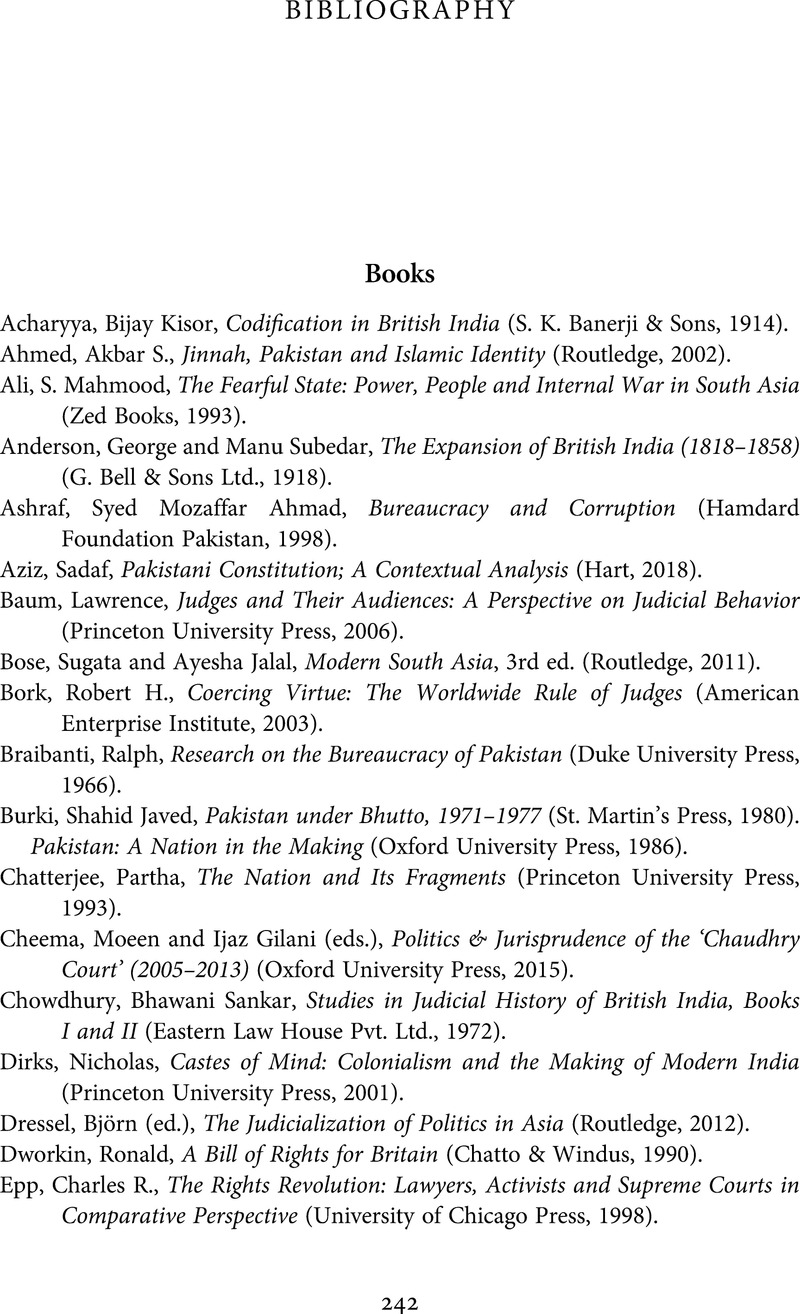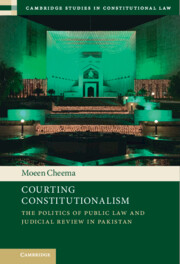Book contents
- Courting Constitutionalism
- Cambridge Studies in Constitutional Law
- Courting Constitutionalism
- Copyright page
- Dedication
- Contents
- Acknowledgements
- Table of Cases
- 1 Introduction
- 2 Postcolonial Legality
- 3 Martial Rule
- 4 Elective Dictatorship
- 5 Praetorian Governmentality
- 6 Indirect Praetorianism
- 7 Military–Civil Composite
- 8 Corporatist Governance
- 9 Conclusion
- Bibliography
- Index
- References
Bibliography
Published online by Cambridge University Press: 16 December 2021
- Courting Constitutionalism
- Cambridge Studies in Constitutional Law
- Courting Constitutionalism
- Copyright page
- Dedication
- Contents
- Acknowledgements
- Table of Cases
- 1 Introduction
- 2 Postcolonial Legality
- 3 Martial Rule
- 4 Elective Dictatorship
- 5 Praetorian Governmentality
- 6 Indirect Praetorianism
- 7 Military–Civil Composite
- 8 Corporatist Governance
- 9 Conclusion
- Bibliography
- Index
- References
Summary

- Type
- Chapter
- Information
- Courting ConstitutionalismThe Politics of Public Law and Judicial Review in Pakistan, pp. 242 - 251Publisher: Cambridge University PressPrint publication year: 2021



